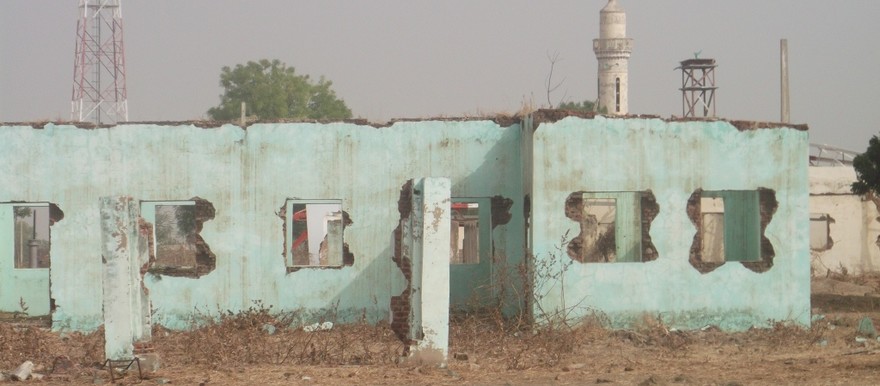The two presidents of Sudan and South Sudan meeting in Juba today were expected discuss the administration and ownership of the disputed Abyei Area. With a political solution still pending, the area remains in a state of limbo.
Photos taken in February and March show a population on edge, a town still in a state of destruction, and a limited relief effort still unsure of itself.
Since the departure of the SAF 31st Brigade in May 2012, Abyei natives have returned only gradually and in limited numbers. Last February a group of about 1500 came back from Western Bahr al Ghazal aided by the International Organisation for Migration, but many found the conditions too harsh and withdrew southward to Aneit beyond the Kiir River, an area better served by aid groups.
Abyei town itself was completely destroyed and depopulated in 2011 and its schools, hospitals and government buildings remain gutted. Only a small market has since risen from the ashes, with a bus station and a few shoddy stores not exceeding 30 in number.
Though UN soldiers are present in force in the town, there is still fear and caution in the faces of traders and market-goers. The vibrant trade witnessed in the area before the referendum time is yet to return.
Outside the town limits, incidents of cattle theft and intimidation marred the stability of the area during the months of February and March. Thousands of cows, goats and sheep were looted by Misseriya herders in about 15 separate incidents, according to Ngok Dinka local chiefs. All of these the incidents occurred in the northern and eastern parts of the region in particular the villages of Tajalei, Marial Achak, Atay, Dokra and Ngong.
Counter-claims by the Misseriya Arabs include a statement by their prominent leader al-Khair al-Fahim that SPLA elements participated in the looting of more than three thousand head of cattle and killing of two civilians.
Whether these accounts have been entirely truthful or otherwise, they suggest a continuing atmosphere of fear, rivalry and hysteria, even with the strong presence of Ethiopian peacekeepers.
The UN Interim Security Force for Abyei has adopted a tolerant approach toward small arms in civilian hands, trying to maintain order by keeping the rival groups apart in designated grazing and watering areas rather than attempting disarmament.
There is no police force yet authorized to maintain security and arrest criminals – nor is UNISFA mandated to enforce laws.Individuals in civilians clothes carry out police duties, and in terms of courts there are only some ‘B’ courts in the Aneit area run by chiefs who deal with customary cases.
In the only prison, the situationis extremely bad with 16 inmates confined to a very small cell of two and half by fourmeters. The head the prisons department in Abyei appealed through Radio Tamazuj for donors and NGOs to help them.
Amid such suffering, there is little observable political development, especially not across ethnic lines. The nine chiefdoms of the Ngok Dinka, however, held a conference together with civil society organizations from 8-11 March, supported by the US Agency for International Development.




